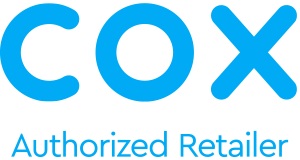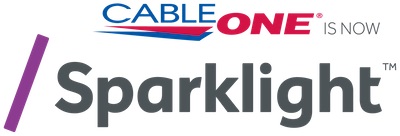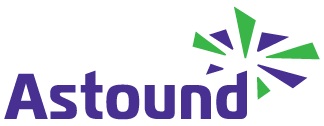HouseholdsIn Colorado, the aggregate number of households is 2,388,533 |
Median IncomeHouseholds in the state of Colorado have a median income of $62,983. |
PopulationThe total population in the state of Colorado is 5,331,645 |
DSL TechnologyApproximately 95.63% of consumers in the state of Colorado have access to DSL internet |
Fiber TechnologyApproximately 9.86% of consumers in the state of Colorado have access to fiber-optic internet. |
Cable TechnologyApproximately 86.75% of consumers in the state of Colorado have access to cable internet. |
Wireless TechnologyApproximately 99.8% of consumers in the state of Colorado have access to mobile broadband internet. |
Average upload speedFor residents in the state of Colorado, the state-wide average upload speed is 7 Mbps |
Average download speedFor residents in the state of Colorado, the state-wide average download speed is 10 Mbps. |
Best Internet Service Providers in Colorado


Call (858) 947-7574

Best Internet Service Providers in Colorado

What are the Best Internet Providers in Colorado?
Before choosing a high-quality Internet provider, it's useful to understand how the different Internet services work. Every service comes with advantages and disadvantages.
When shopping for Internet service, consumers have many options to choose from, and since companies are constantly competing for business, it has become much easier to find great deals. The download speeds offered with most services are increasing while the price is dropping. The main services that consumers can choose from are cable, DSL, satellite and fiber-optic Internet. The problem is that the list of choices can be confusing, and by offering bundles for various services, the Internet companies aren't making the decision any easier.
There are many deals available for high-speed Internet in Colorado, and by comparing the different services, consumers can choose the Internet service that suits their needs. MyRatePlan provides comparison tools for consumers and helps make the decision process easier. Our tool can even find high-speed Internet options that are compatible with an existing phone or TV service. To start using the tool, a ZIP code must be entered.
MyRatePlan makes it easy to find home Internet services, but it even has a section for business Internet. With an advanced tool from MyRatePlan, consumers can check the speed of their current Internet connection on any device because the tool doesn't need Flash or Java.
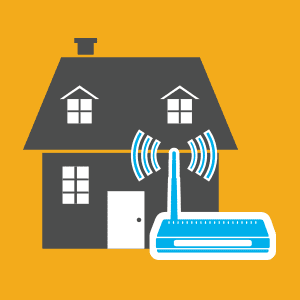
Cable Internet Service Providers in Colorado
Cable Internet services in Colorado are provided by the same cable corporations that provide cable TV and telephone service in the area. High-speed Internet service is delivered to your home with physical coaxial cable or fiber-optic cable. The cable company has built a physical cable network in Colorado to connect its users with the company for Internet, cable TV and other services. Users can receive Internet service in their homes through a cable modem which shares bandwidth with television service for a fast, secure Internet connection. MyRatePlan provides broadband comparison information to help customers find a cable Internet plan that meets their needs.
In an overall cable connection, Internet only occupies a relatively small amount of bandwidth when compared to that required for cable television. This means that it's easy to bundle Internet service together with cable TV and telephone. In Colorado, cable companies regularly offer bundles with various combinations of telephone, television and Internet service. When customers add Internet to existing cable service, they can simply add a modem as the cable infrastructure is the same as that which delivers television or telephone services. The physical cabling means that it doesn't matter how far a customer is from the cable company's home office, they will enjoy the same high rate of speed and power.
When users don't share a cable channel with others, cable Internet is a particularly excellent choice in Colorado. If, on the other hand, there are many other cable Internet users clustered around the same area, users may experience lessened connection speeds or other difficulties. This is especially true if many users are simultaneously streaming high-definition video or other demanding, bandwidth-intensive applications. With cable Internet, every user on one cable channel shares the same bandwidth. If customers are considering a cable subscription in Colorado, use MyRatePlan to compare bundles of television, telephone and Internet services with single-service subscriptions. Its tools can help to determine whether a single product or a bundle is a better deal.

Fiber Optic Internet Service in Colorado
One of the latest advancements in digital technology is fiber optics. Several service providers have started offering fiber-optic Internet services, and in Colorado, there are several different providers. These service providers offer phone, TV and Internet services using a fiber-optic network, which functions similarly to a cable network. The major difference is the improved speed offered by a fiber-optic network, and in many areas, the speed difference is significant. Fiber-optic services are almost always called FiOS.
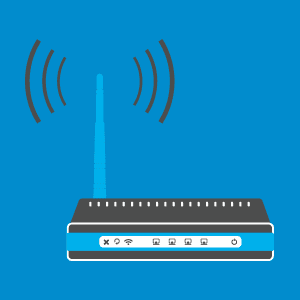
Compare DSL Internet Providers in Colorado
DSL, short for Digital Subscriber Line, uses your analog phone line to transmit Internet data. However, unlike the old days of dial-up Internet, you can still make phone calls if you are connected to the Internet. This is because phone calls only use up a small portion of the bandwidth which their lines allow for. DSL Internet providers in Colorado will supply you with a special modem which allows you computer to speak to your Internet service provider over your phone line. Users who do not already have an analog phone line in their home will have to pay for installation of this line. DSL Internet providers are often more expensive than cable Internet providers.
DSL is not a shared connection type like cable, so your Internet speeds should not fluctuate as much from day to day. The connection you have should be about the same speed and reliability from day to day. However, it depends on your location and distance from your Internet service provider whether your DSL connection will be faster than cable or not. Usually, a good rule of thumb is that the further you are from your provider, the more the quality of your connection will deteriorate. DSL can provide much faster connections than cable if you are located near a provider, or much worse if you are far away from your provider. The latency of a DSL line can vary by a wide margin (around 10 to 70 millisecond response time) depending on the providers in your area. You will need to ask around in your area to see if you are ahead to switch to DSL, and MyRatePlan can help you to find the best DSL providers in Colorado.

Satellite Internet Services in Colorado
Many residents of Colorado are looking for satellite Internet, and they want to get the best deals available. Satellite Internet uses a satellite dish and doesn't work like cable or DSL. To use this Internet connection, you must have a satellite dish, and it must face towards the equator. A modem is needed to establish a connection between your computer and satellite dish. Once you're paying a service provider, the satellite dish receives a signal that is beamed down from a satellite. The modem translates the data and provides a working Internet connection.
Satellite Internet service isn't terribly popular with residents of Colorado because it's not as fast as cable or DSL. However, it's almost always the best option for people who live in rural, remote areas because it's not cost effective for providers to install physical lines in these areas. Cable and DSL tend to be the best options for most people who don't live in rural areas.
Find Internet Service Providers in
- Denver, CO
- Colorado Springs, CO
- Aurora, CO
- Fort Collins, CO
- Fairplay, CO
- Gateway, CO
- Fleming, CO
- Conifer, CO
- Coalmont, CO
- Clark, CO
- Rockvale, CO
- Crowley, CO
- Telluride, CO
- Mesa, CO
- Meeker, CO
- Fort Morgan, CO
- Dumont, CO
- Penrose, CO
- Delta, CO
- Cory, CO
- Dacono, CO
- Buffalo Creek, CO
- Walsenburg, CO
- Two Buttes, CO
- Kersey, CO
- Hamilton, CO
- Springfield, CO
- Julesburg, CO
- Arriba, CO
- Anton, CO
- Idaho Springs, CO
- Conejos, CO
- Sterling, CO
- Sedgwick, CO
- Paoli, CO
- Naturita, CO
- Grand Lake, CO
- Yampa, CO
- Ward, CO
- Arboles, CO
- Woodrow, CO
- Elbert, CO
- Broomfield, CO
- Arvada, CO
- Arlington, CO
- Otis, CO
- Towaoc, CO
- Eagle, CO
- Craig, CO
- Trinchera, CO
- Tabernash, CO
- Aspen, CO
- Ignacio, CO
- Coal Creek, CO
- Golden, CO
- Canon City, CO
- Cripple Creek, CO
- Rangely, CO
- San Pablo, CO
- Saguache, CO
- Pagosa Springs, CO
- Lafayette, CO
- Calhan, CO
- Wild Horse, CO
- Victor, CO
- Hayden, CO
- Salida, CO
- Platteville, CO
- Galeton, CO
- Evans, CO
- Bedrock, CO
- Moffat, CO
- Brighton, CO
- Monument, CO
- Pine, CO
- Carbondale, CO
- Simla, CO
- Mc Coy, CO
- Vail, CO
- Idalia, CO
- Thornton, CO
- Gunnison, CO
- Estes Park, CO
- Deer Trail, CO
- Mead, CO
- Lyons, CO
- Henderson, CO
- Crested Butte, CO
- Mesa Verde National Park, CO
- Mancos, CO
- Toponas, CO
- Strasburg, CO
- Weston, CO
- Rocky Ford, CO
- Ordway, CO
- Eastlake, CO
- Laporte, CO
- Las Animas, CO
- Brush, CO
- Lake George, CO


 Menu
Menu


